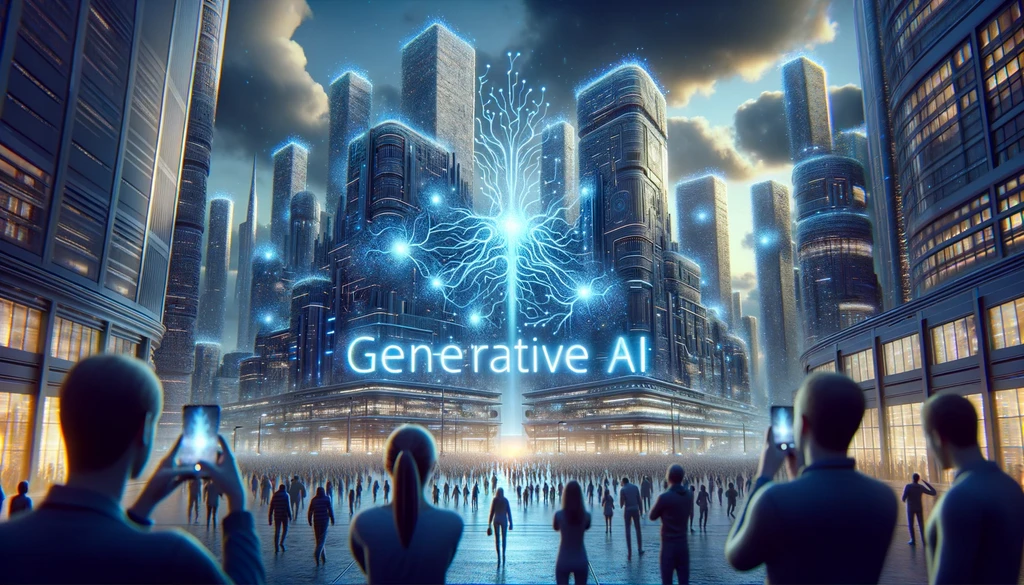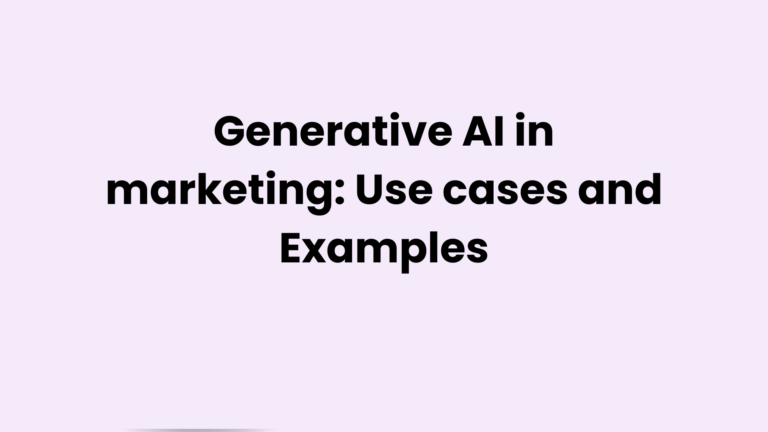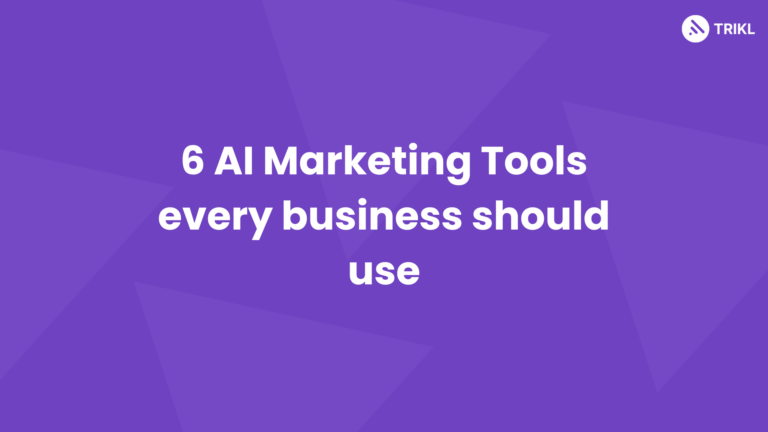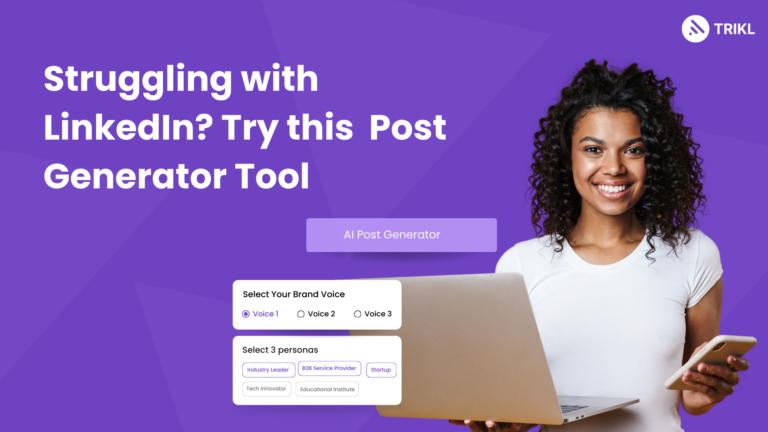Introduction:
The rapid advancement of technology has led to the rise of generative AI, a revolutionary approach that has the potential to unlock limitless possibilities for innovation. Generative AI uses machine learning algorithms to generate new content, designs, or ideas that mimic human creativity and imagination. By harnessing the power of deep learning, generative AI has emerged as a game-changer in various domains, including art, music, content creation, medicine, and gaming.

Understanding Generative AI:
Generative AI is a subset of artificial intelligence that focuses on creating new and original content using neural networks. It operates on deep learning principles, a branch of AI that mimics the human brain’s neural network architecture. Deep learning algorithms analyse vast amounts of data to identify patterns, learn from them, and generate new outputs.
Generative Models:
Generative models lie at the heart of generative AI. They are algorithms that learn a given dataset’s underlying structure and distribution and use this knowledge to generate new samples that closely resemble the original data. Several generative models exist, such as Generative Adversarial Networks (GANs), Variational Autoencoders (VAEs), and autoregressive models.
Training Generative Models:
To train generative models, a large dataset is required. The quality and quantity of the data play a crucial role in the success of the models. During training, the generative models learn patterns, correlations, and features from the data, allowing them to generate novel outputs. Iterative learning and fine-tuning refine the models over time, resulting in more accurate and creative outputs.
Applications of Generative AI:
Generative AI has found applications in various domains and has significantly impacted multiple industries. In art, generative AI has empowered artists to create intricate and unique artworks by leveraging the algorithm’s ability to generate new designs. Similarly, musicians have benefited from productive AI tools that compose original melodies and harmonies. Content creation, medicine, and gaming are other fields where generative AI has opened new possibilities, allowing for the creation of engaging content, breakthroughs in drug discovery, and immersive gaming experiences.

Generative AI and Innovation:
Generative AI has become a catalyst for innovation, revolutionising how we approach creativity and problem-solving. By unlocking the potential of artificial intelligence, generative AI has enabled groundbreaking innovations in various fields.
Unlocking Creativity:
Generative AI has become a valuable tool for assisting artists, musicians, and writers in their creative endeavours. By collaborating with generative AI tools, artists can explore new styles, experiment with different concepts, and break free from creative blocks. Musicians can use generative AI algorithms to generate new melodies and harmonies, opening avenues for novel compositions. Writers can leverage generative AI to inspire plot ideas, develop dynamic characters, and enhance their storytelling abilities.
Advancing Medicine and Healthcare:
Generative AI is playing a significant role in advancing medicine and healthcare. In drug discovery and development, generative AI aids in identifying potential drug candidates by simulating molecular structures and predicting their properties. This accelerates the search for effective treatments and reduces the time and cost involved in traditional drug development. Moreover, generative AI models contribute to improving diagnosis accuracy by analysing medical images and providing insights for better patient care.

Transforming Industries:
Generative AI has emerged as a disruptor in various industries, including fashion, entertainment, and advertising. Fashion designers can leverage generative AI to create unique and personalised designs catering to individual preferences. Generative AI generates realistic characters, immersive virtual worlds, and captivating storylines in the entertainment industry. Advertising agencies also benefit from generative AI by producing targeted, engaging content that resonates with specific audiences.
Ethical Considerations:
Addressing the ethical challenges and concerns associated with its use is essential as generative AI becomes more prevalent. Balancing innovation with responsible practices is crucial to ensure that productive AI technologies are used ethically.
Intellectual Property and Copyright:
Generative AI poses implications for ownership and copyright laws. Determining authorship and attributing creative outputs generated by algorithms can be challenging. Clear guidelines and regulations are needed to protect the intellectual property of both human creators and AI-generated content.
Bias and Fairness:
Generative AI models are not immune to bias, and ensuring fairness is a significant concern. Bias in training data can lead to discriminatory outcomes, reinforcing existing societal imbalances. Addressing these biases and developing strategies that promote inclusivity and fairness in generative AI models is crucial.
Privacy and Security:
The rise of generative AI raises privacy and security concerns. The ability of AI models to generate realistic human-like content can lead to the creation of convincing deepfake videos or forged documents. Strict safeguards and countermeasures must be in place to protect individuals’ privacy and prevent the misuse of generative AI technologies.

Future Prospects and Challenges:
Looking ahead, generative AI holds immense potential for further innovation and advancements. However, several challenges need to be overcome to realise its full capabilities.
Human-AI Collaboration:
The future lies in a collaborative relationship between humans and generative AI. By leveraging the unique strengths of both sides, we can enhance problem-solving abilities, creativity, and innovation. The interaction between humans and generative AI can lead to discoveries, novel solutions, and groundbreaking breakthroughs.

Closing the Gap to Human-like Generation:
While generative AI has made significant strides, achieving human-level generative capabilities remains challenging. Advancements are needed in developing more complex models, enhancing data processing capabilities, and understanding the intricacies of human creativity. Breakthroughs in these areas will bring us closer to the goal of human-like generative AI.
Summary:
Generative AI has emerged as a powerful force driving innovation across various domains. Generative AI has revolutionised traditional approaches to creativity, problem-solving, and content generation by unlocking limitless possibilities. Through collaboration between humans and AI, generative AI has the potential to reshape industries, advance healthcare, and open up new avenues of exploration.
FAQs:
What exactly is generative AI?
Generative AI is an approach that uses machine learning algorithms to generate new, original content, designs, or ideas. It operates based on deep learning principles and has significantly advanced in various fields.
How does generative AI differ from other AI approaches?
Generative AI differs from other AI approaches, which focus on generating new outputs rather than solely on analysing and interpreting existing data.
What are the main applications of generative AI?
Generative AI finds applications in art, music, content creation, medicine, gaming, and other industries. It is pivotal in fostering creativity, supporting drug discovery, improving diagnosis, and transforming various industries.
What are the ethical concerns surrounding generative AI?
Ethical concerns related to generative AI include intellectual property and copyright issues, bias and fairness in AI-generated content, and the need to safeguard privacy and security in the age of advanced AI technologies.
How will generative AI shape the future of innovation?
Generative AI can revolutionize innovation by unlocking new possibilities and collaborating with human minds. As generative AI evolves, it will contribute to groundbreaking breakthroughs, advancements in healthcare, and transformations in diverse industries.II




